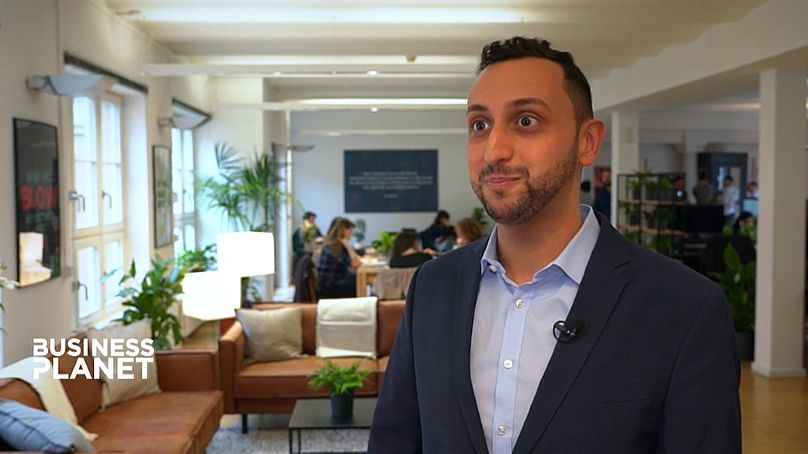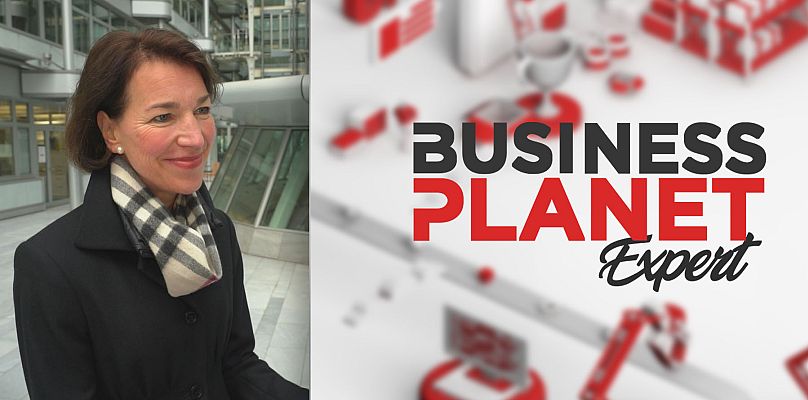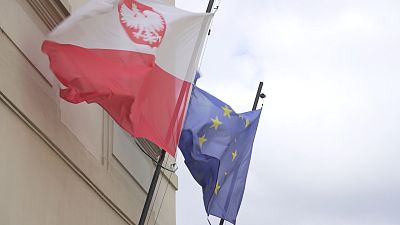Business Planet heads to Berlin to see how one innovative book publisher has accelerated its growth thanks to smarter finance backed by Europe.
Business Planet heads to Berlin to see how one innovative book publisher has accelerated its growth thanks to smarter finance backed by Europe.
Scraping together the capital to start or supercharge your business can often be a major hurdle for any enterprise. Small businesses, especially in their early days, often struggle to secure the vital finance they need to grow. But an EU investment strategy aims to change all that by making it easier for banks and other private sector investors to lend.
Writing a successful business story
Spotting a future bestseller can be tricky. Many famous writers, such as Harry Potter author J.K Rowling, have spoken about the rejection they faced before finally landing a big publishing deal. Berlin based publisher Inkitt, however, thinks it has the answer. By using IT and crunching the numbers, it says that it can objectively pick the most popular stories, authors and books.
But the company’s ambitions don’t stop there. Earlier this year it launched its new immersive reading app called Galatea. Aimed at the Instagram generation, the digital format seeks to turn the e-reader universe on its head.
“On Inkitt, authors post their manuscripts and readers read them for free initially. Our data models then analyse their reading behaviour to predict potential bestsellers. The best stories are then published on our immersive reading app, Galatea, where you can hear sound effects and even feel the heartbeat of the protagonist while reading,” explains Inkitt’s founder and CEO Ali Albazaz.
Inkitt is enjoying breakneck growth. Funded largely by venture capital, part of that finance was backed by the EU through its Investment Plan for Europe. This not only helped reduce the risk for the first private investors, who decided to plough capital into the company, it also encouraged other venture capitalists to jump on board later down the line.
“The funding was crucial, insists Albazaz. “It helped us grow Inkitt to 2 million users, and even Galatea to a million users within 10 months from launch. Which is now the fastest growing app in entertainment.”
Show me the money
Like Inkitt, more than a million small businesses in Europe have accessed this type of EU supported finance.
Investitionsbank Berlin (IBB) is a business development bank. It offers a range of financial services, including venture capital, to firms and startups in the Berlin region.
“For us, being a regional development bank it (the Investment Plan for Europe) helps us, and encourages us, to share the risk. Since 2014, in the region of Berlin, more than 2000 enterprises took benefit out of these funds., says IBB's Irene Schucht.
Irene Schucht heads the Department of Strategy and Products at Investitionsbank Berlin. Business Planet spoke to her to get more insight on how the Investment Plan for Europe helps small and medium sized companies.
How does the Investment Plan for Europe make it easier for banks to lend?
"There are many programmes tailored towards startups and small or innovative businesses that combine private, regional and EU funding. Investitionsbank Berlin already offers refinancing in the form of loans to commercial banks, such as in the “Berlin Innovativ” programme. By incorporating a 50% counter-guarantee from the InnovFin programme, under the Investment Plan for Europe, IBB is able to take 70% of the default risk. This encourages other banks in Berlin to finance innovative businesses and new technologies without collateral and support projects that might otherwise just seem a little bit too risky despite a convincing business case."
If I’m a small business or entrepreneur, how can I access this type of finance?
"The region of Berlin has two first stop agencies for businesses that need assistance to finance their projects. The Enterprise Europe Network Berlin-Brandenburg hosted by Berlin Partner for Business and Technology offers information and advice about EU finance and funding schemes and helps forge international partnerships. Investitionsbank Berlin, the regional development bank, offers access to finance directly and indirectly in cooperation with commercial banks. Moreover, IBB manages more than half of the ESIF (ERDF) funds for Berlin in instruments such as grants for R&D projects (Pro FIT), microcredits and venture capital for technology and creative startups."
Useful facts
Access to finance is one of the most pressing issues for many start-ups and small enterprises.
The Investment Plan for Europe, launched by the European Commission in 2014, aimed to mobilise €315 billion in additional investment. As of October 2019, it is expected that the Plan will trigger €439.4 billion in investments with a target of €500bn by 2020.
More than one million start-ups and small businesses are expected to benefit from improved access to finance under the plan.
Inkitt received an equity investment from Frontline Ventures, a venture capital firm backed by the European Investment Fund under the Investment Plan for Europe and the InnovFin Equity.
The cultural and creative industries sector, in which Inkitt operates, contributes significantly to the EU economy with an estimated €1,500 billion of turnover per year and jobs for over 12 million people, which is 7.5% of all people employed in the EU.






